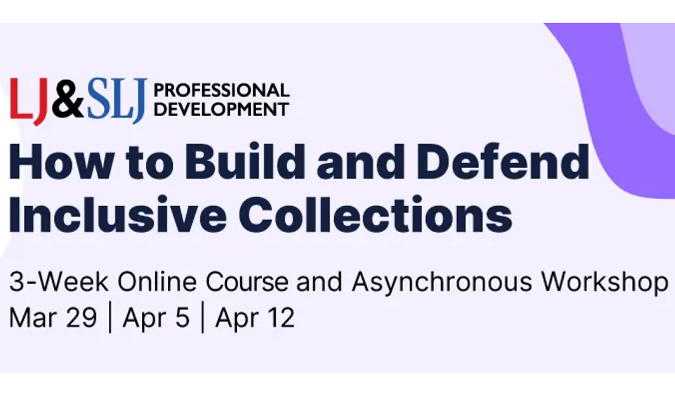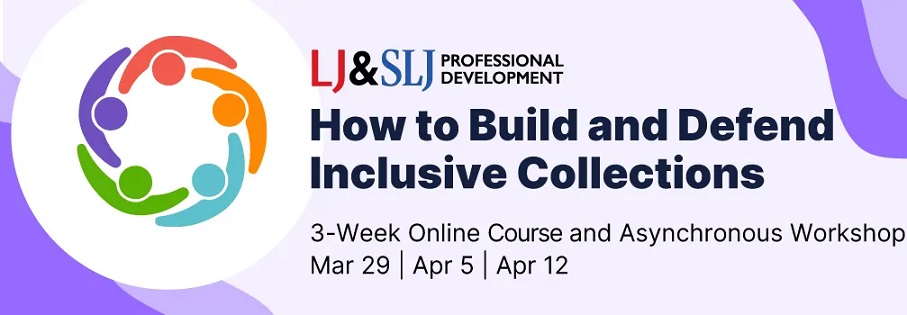During an online professional development course called “How To Build and Defend Inclusive Collections” sponsored by Library Journal, Cornell University collection development librarian Carson Williams, asserted that “fostering an inclusive, safe queer library environment is the most important thing you can do.”
We want to thank Arlene Quaratiello for this Op-Ed. Please submit yours to Editor@GraniteGrok.com.
Williams, who identifies as “transmasculine” and prefers to be called “he,” affirmed that by doing this most important task, library staff are “appreciated” and that they “are so loved.” “His” presentation, which had practically nothing to do with books, focused instead on opposing what “he” called “anti-trans legislation” (a lot of which is more accurately referred to by supporters as parental rights laws).
According to Williams, those like “him” who oppose “anti-trans” laws are “on the right side of history.” At one point in this political activist training session disguised as a professional development course, Williams even displayed a map called the “Anti-Trans Legislative Risk Map” with states highlighted in different colors to identify them as “safest states” to “worst anti-trans law states.” Viewers were reminded by the presenter: “It is our duty, as librarians, as outlined in the American Library Association’s Library Bill of Rights…to resist efforts that systematically exclude materials dealing with…sex, gender identity or expression, or sexual orientation.” Williams, who was praised by the course moderator during another session as “one of our brilliant speakers,” closed with a quote that is particularly antithetical to some fairly mainstream religious beliefs: “God blessed me by making me transexual for the same reason God made wheat but not bread and fruit but not wine so that humanity might share in the act of creation.”
Library Journal’s program regarding “inclusive collections” reveals that the promotion of Marxist ideology is not limited to the American Library Association but is also a driving force for this leftist trade journal that also sponsors online courses. The program coordinator provided the first indication of the overall tone of the workshop by virtue signaling at the start of every session with a “land acknowledgment statement.” It was unfortunate that none of the participants asked her which American Indian tribe “owned” the land before the tribe she mentioned because the history of such tribes was historically bloody, not the “Dances with Wolves” depiction we have been fed by liberals. The use of these statements simply perpetuates the myth of oppression that is the cornerstone of Marxist ideology, intending to destroy our society by fomenting hatred between the “oppressed” and the “oppressors.”
The first speaker, Kymberlee Powe, a consultant for the Connecticut State Library, opened the course with her presentation “Creating Inclusive Library Collections.” She actually identified an important counterargument, perhaps unintentionally in a “devil’s advocate” sort of way when she asked, “Shouldn’t we buy the books that we know that our patrons are going to take?” This hypothetical question acknowledges the true priority of libraries (especially those that are public) to serve those who use them, and it suggests the very real possibility that library patrons may not necessarily want the sort of titles that satisfy DEI requirements. But she never got around to satisfactorily refuting this counterargument, so this question, pertaining to why books would be purchased that aren’t likely to be read just because librarians think that the users they serve (those who actually pay for the books) should read them, remained unanswered.
Dontana McPherson-Joseph reiterated the agenda of the previous speaker. She first identified the parameters for conducting a “diversity audit” of library collections that included most prominently, of course, race/ethnicity and LGBTQIA identity. According to Dontana, the purpose of conducting such an audit is to provide the community with not just what they “want to read but also what they need to read.” In communities that she glibly described as “super-white,” she asserted the importance of giving patrons more resources about non-white people and reinforced the role of librarians in this obviously politically motivated enterprise.
The next speaker, Betsy Bird, Collection Development Manager of Evanston Public Library, focused on the process of “weeding” library collections. Weeding is the process of getting rid of old books to make room for new books. Bird advocated establishing “different standards based on historical inequities,” explaining that “every algorithm has inequity baked into it.” Black, “Latinx,” and indigenous authors should, therefore, according to Bird, get more time on the shelf before weeding. She also suggested displaying books about the “historically marginalized” prominently before weeding. Her implication, of course, is that these groups are oppressed and that they should be given special consideration in order to overcome their oppression.
Kelly Jenson, an editor at Book Riot (see the “about” section of this company’s website, and you’ll learn all you need to know about its super-woke agenda), offered a presentation that criticized the group Moms for Liberty and other similar conservative groups for providing lists of objectionable books held by school and public libraries. She inaccurately stereotyped all the volunteers who draw up these lists as having no background in libraries, literacy, or education and basically are ignorant “book banners” who know nothing about books.
The overall tone of the whole program was one of crisis—a Marxist technique to get people riled up—with Jenson calling the present time “the era of censorship” as libraries are “under attack from legislatures” as well as “book banners.” Those who would oppose the agenda of this course were branded as “conspiracy theorists” who are consequently on the “wrong side of history” (and aren’t loved either if one extrapolates on Carson William’s comments).
During the final session of the course, Meghan O’Keefe ridiculously addressed the alleged racism of Dewey Decimal’s call numbers. She claimed that categorizing books in social sciences (300s) rather than history (900s) reflected the belief that “history is written by the winners.” This absurd complaint reflects the Marxist dogma of “othering” (which she oddly used as a verb a lot) in which books about the “oppressors” go in the 900s while the “oppressed” are relegated to the 300s. She fails to recognize the inherent weakness of this classification scheme which requires that books on complex multidisciplinary topics be assigned a single number.
Kymberlee Powe, who had opened the course, concluded by asserting that the goal of librarians should be to “rebalance the historical inequity that exists within our libraries” and later creepily broadened this to “creating a more equitable existence.” While such statements and all that preceded them clearly reflect Critical Race Theory, the presence of the “Privilege Bead Exercise” in the supplemental materials was an egregious addition to this course. The purpose of this CRT exercise is to make participants feel bad if they are deemed more “privileged” or less “privileged” than others. At the end of the bead exercise, those with fewer beads on their bracelet will consequently feel inferior and consider those with more beads superior because of their “privileged status” due to race, religion, class, nationality, sexuality, and/or gender.
Library Journal’s online course, “Defending Inclusive Collections,” clearly opposed Martin Luther King’s dream of people being judged by “the content of their character” rather than “the color of their skin.” The overwhelming and disturbing takeaway was that books should be primarily judged by the race, gender, and other inherent traits of the protagonist rather than for the quality and merits of the story. Sadly, in today’s woke libraries, it is considered acceptable to espouse such beliefs; in fact, it is expected that staff members will support such beliefs that align with the liberal agenda that the presenters in this course arrogantly reinforced as “the right side of history.” The truly marginalized group that emerges from this egregious state of affairs consists of conservatives, especially those who work in libraries, who oppose this woke ideology and whose opinions are consequently disrespected and denigrated.
HT | Arlene Quaratiello’s new Substack newsletter, “No Shushing Now: Exposing Today’s Woke Library.”

